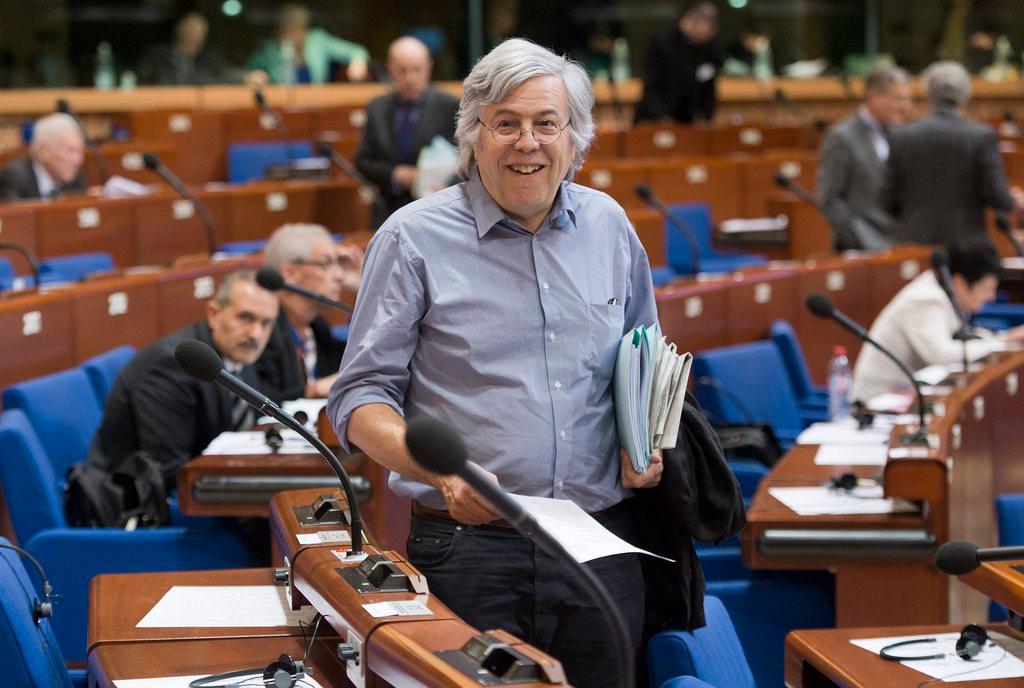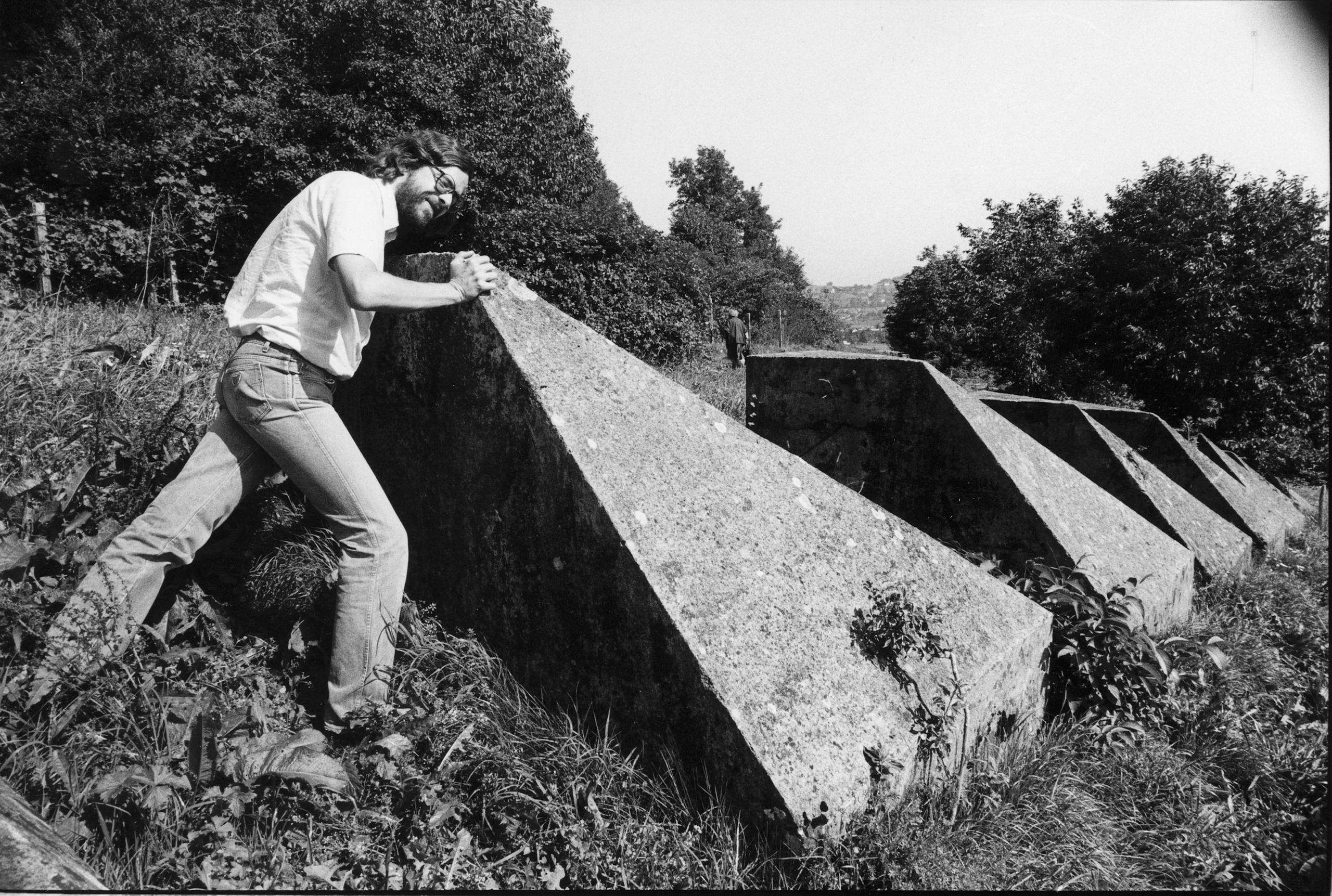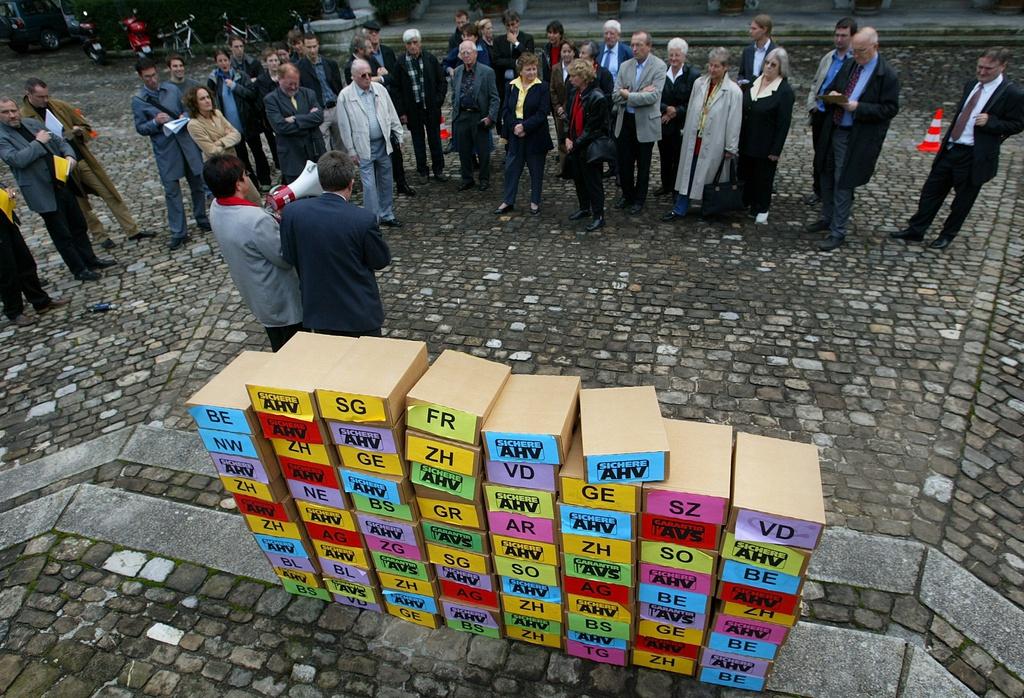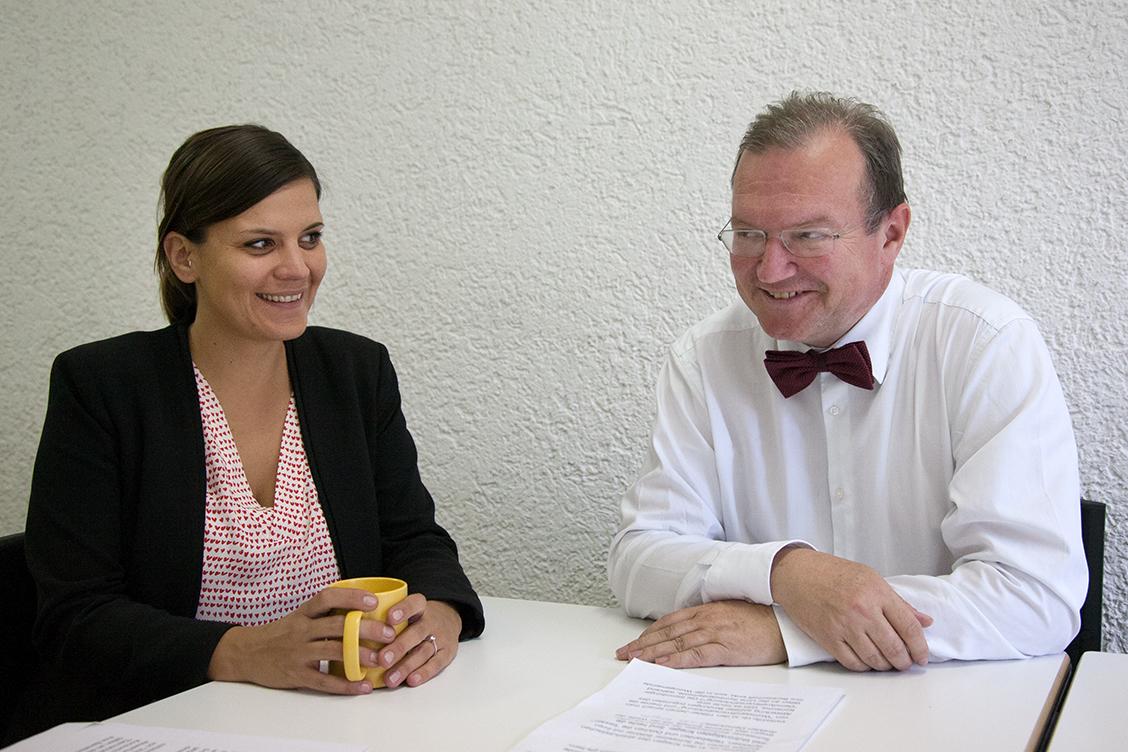Politicians should not be afraid of people’s power

Andreas Gross is a renowned expert on direct democracy and one of a kind: He may be the only Swiss citizen who has practical experience as a grassroots activist who launched people’s initiatives and organised campaigns, as a member of local, national and European parliaments and as a researcher and author on the subject of people’s power.
Having dedicated most of his professional life to issues of participatory democracy, the 63-year old trained political scientist and politician looks back over four decades in a wide-ranging collection of essays, interviews, analyses and a speech at the United Nations General Assembly in New York.
His book Die unvollendete Direkte Demokratie (Unfinished direct democracy) was the perfect opportunity for swissinfo.ch to ask him for a very short list of Dos and Don’ts.
Gross likes to compare the system of direct democracy with a jigsaw puzzle. Sometimes he refers to it as a total work of art, a kind of ‘Gesamtkunstwerk’. The fascinating but tricky thing is, he says, that the elements of the puzzle are fluid, so it is virtually impossible to achieve a stable and perfect system of direct democracy.
Trying to narrow down the key elements of the Swiss-style democracy other countries could learn from, Gross singles out three things:
Assets…
“Firstly, politicians should not be afraid of sharing power with the people because there is no important issue which can’ t be understood by citizens. Everybody can learn, and societal learning is one of the key by-products of direct democracy.
“Political power also has to be divided between different layers of a federalist European state – with national, regional and local levels. In Switzerland, this means that citizens can decide on taxes and not a central government. For many people in Europe this is far from their reality. But the European Union would do well to introduce some direct democratic elements.
“The Swiss experience shows that modern citizens like the instrument of direct democracy – the right to propose ideas on almost any subject at any time and thereby changing the constitution or amending a law – this is lesson or encouragement number two.
“I discussed citizens’ participation with people in about 65 different countries around the world and probably took part in more than 1,100 public debates on the subject over the past 40 years and I never came across anybody who did not like the idea of suggesting political ideas.
“Whether citizens use their direct democratic rights wisely – this is not up to us to judge. Opinions may differ about the wisdom of a citizens’ decision or a proposal but it is fundamental to give them a say in a democratic state.
“Point number three: Instruments of political participation must be citizens-friendly. The design defines the quality of direct democracy. The hurdles to force a nationwide vote have to be low – in Switzerland it takes only about 2% of eligible citizens for a proposal to change the constitution, and about 1% to challenge a decision approved by parliament.
“Then campaigners must have plenty of time to collect the signatures – 18 months and 100 days respectively in Switzerland. In other countries the deadlines are much shorter, sometimes a matter of weeks between the collection of signatures and the votes.
“Campaigners must also be free to choose the public space where they address citizens. Nobody should have to go to a police station to sign an initiative.

“Finally, the public debate is the soul of direct democracy and turnout must not decide whether a vote is valid or not, like in Italy for instance. In footballing terms, having a quorum system is like awarding a goal to a team whose player has committed a bad foul instead of sending that player off the pitch.”
… and warnings
Gross has been an admirer of football and supporter of FC Basel, the team of the northern Swiss city where he grew up. But leaving aside the sports imagery – which to outsiders might not necessarily help clarify things – his attention then focuses on three weak spots of direct democracy in Switzerland.
“Unlike California or Germany, Switzerland lacks a constitutional court which rules on initiatives not compatible with basic human rights. Such an institution is needed to prevent decisions that discriminate against minorities, leading to a tyranny of the majority.
“Everybody has basic rights. They must never be subjected to votes. Certain groups of people – even criminals – must be protected under the law. There are a number of recent initiatives in Switzerland which were accepted by voters but which violate fundamental rights. The proposal to automatically deport foreign criminals, or the initiatives to lock away for life sexual offenders without giving them a second chance or the initiative to ban convicted paedophiles from working with children are cases in point.
Die unvollendete Direkte Demokratie (Unfinished direct democracy), published in German, is a collection of essays by Gross over the past 30 years.
The 390-page tome includes historical analyses, international comparisons and an annual record on Swiss direct democratic decisions, as well as interviews and his speech to the UN General Assembly in New York.
A translation into French is planned.
“Warning number two: Democracy needs transparency rules on the financing of political campaigns and parties. Because money is a risk that can undermine the system. Despite repeated criticism by the Council of Europe, Switzerland is the only country in Europe without a law that defines limits for sponsors in politics.
“This is all the worse because most countries face the funding issue every four years for elections, whereas the Swiss go to the polls four times a year to vote on a wide range of subjects. It is important to know whether one person spends for instance CHF5 million ($5.1 million) on a particular campaign or whether five million people contribute CHF1 each.
“The reason for the government’s and parliament’s refusal to set rules is Switzerland’s notion of privacy that goes very far.
“Since there are no transparency rules in Switzerland it is difficult to say to what impact money has had on individual campaigns. Also, money is never the only factor and a defeat can’t be blamed on the lack of financial means, although there is no denying that it is very important.
“It is all more subtle than that, similar to an unfair contest. One side might feel they don’t stand a chance against an opponent who has 50 times more funds to spend. It creates a feeling of discouragement. In Switzerland, it is generally assumed that the political right has ten times more money to spend than all the others do.
“Thirdly, democracies need strong political parties to defend the interests of the general public, train politicians, organise debates and inform citizens about political issues at stake.
“Unfortunately interest groups – be they business associations or others like environmental groups, representing private interests by definition – have much more funds than most parties.
“It is noticeable that these associations and groups have an increasingly strong presence in the media; they often dominate the public space, notably in German-speaking Switzerland, at the expense of parties or citizen groups.”
During the conversation, Gross repeatedly draws international comparisons, he delves into history, referring to intellectuals past and present, to explain and exemplify. He makes additional recommendations and warnings, notably the blatant lack of civic education in Switzerland when it comes to direct democracy.
But let’s end with a quote which shows his passion for the participatory system: “When I’m in Germany I often say: You can like direct democracy but you can still dislike Switzerland.”
Do you agree with Gross’s comment?
The author
Andreas Gross is a leading expert on direct democracy, author and researcher.
Born in 1952, he spent the first seven years of his life in Japan before his family moved to Switzerland.
He studied political science and worked as a researcher, lecturer and politician at a local, national and international level.
He was a member of the Swiss parliament from 1991 to 2015 and a Swiss representative of the Council of Europe (CoE) for 20 years. He headed the Social Democratic group in the CoE for six years.
Gross was one of the leading lights of an initiative to abolish the Swiss army, rejected by voters in 1989, and a co-founder of the initiative for Switzerland to join the UN, approved in 2002.
He also acted as international observer of more than 90 elections in Europe.

In compliance with the JTI standards
More: SWI swissinfo.ch certified by the Journalism Trust Initiative






You can find an overview of ongoing debates with our journalists here. Please join us!
If you want to start a conversation about a topic raised in this article or want to report factual errors, email us at english@swissinfo.ch.